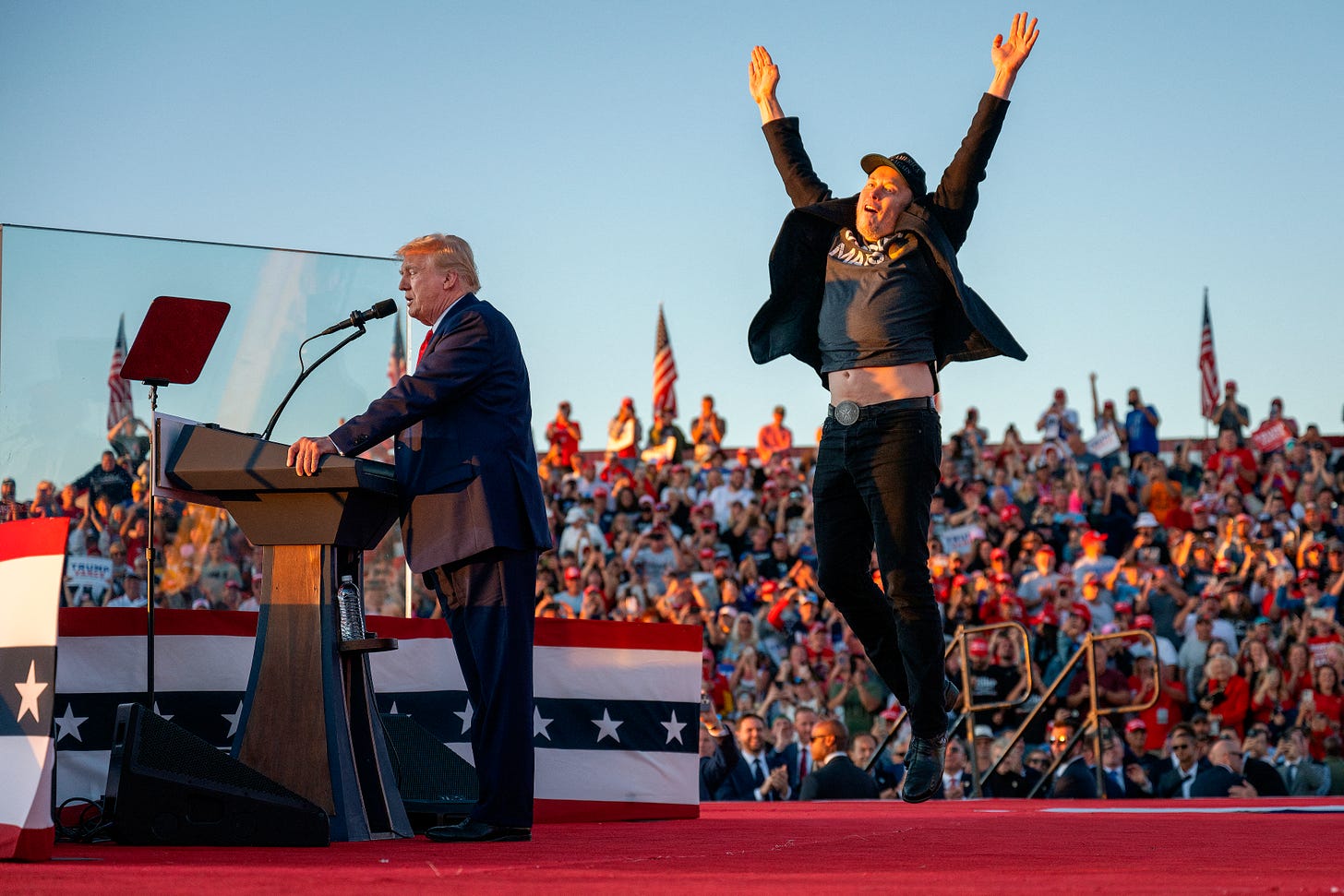Twitter, which is what I prefer to call Elon Musk’s disaster, is still interesting and useful at times, despite its decay.
And the other day, there was a dustup there over two New York Times headlines. One was about Kamala Harris, the other about Donald Trump.
Positioned directly next to each other, as they were on the Times site, they were quickly seen as a microcosm of What the Hell is Wrong with Media Today. “This arrangement and editorial gloss may stand for, capture, the journalism about the entire campaign,” noted Josh Marshall, the founder of Talking Points Memo.
One, on a story about how Harris has avoided specifics in order to stay on message as she does press interviews read: In interviews, Kamala Harris continues to bob and weave.
The other, on a story about Trump’s alarming language about migrants as carriers of supposedly impure bloodlines and genes read: In remarks about migrants, Donald Trump invoked his long-held fascination with genes and genetics.

Commenting on the second headline, the author Stuart Stevens, who writes about how democracies turn into autocracies, suggested: “These two headlines should be studied in journalism classes for decades.”
After I responded, “Not a bad idea,” a prominent voice from the New York Times chimed in. Michael Barbaro, who hosts The Daily podcast, posed a challenge to me: “Care to explain what the issue is with these headlines?”
Barbaro, whom I know from my days as public editor of the Times, is a smart guy, so I’m pretty sure he knows what the issue might be.
But sure, I’ll explain: The Kamala Harris headline is unnecessarily negative, over a story that probably doesn’t need to exist. Politicians, if they are skilled, do this all the time. They answer questions by trying to stay on message. They stay away from specifics that don’t serve their purpose.
“Can you be a political reporter and have perhaps never seen a politician be interviewed before?” Marshall mused. “Is this article even real?”
This is not news, but it fits in with the overhyped concern over how Harris supposedly hasn’t been accessible enough to the media — or if she is accessible, it’s not to interviewers that are serious enough. It doesn’t seem to matter that just days ago, she submitted to an interview with CBS News’s “60 Minutes,” known for its probing style; meanwhile, we know that Trump first agreed to, and then backed out of a 60 Minutes interview, apparently in part because he didn’t want to be fact-checked.
So, it’s a negative headline over a dubious story. By itself, it’s not really a huge deal. Another example of Big Journalism trying to find fault with Harris. More of an eye-roll, perhaps, than a journalistic mortal sin.
But juxtapose it with the Trump headline, which takes a hate-filled trope and treats it like some sort of lofty intellectual interest.
That headline, wrote Stevens, “could apply to an article about a Nobel prize winner in genetic studies.”
The article itself got to the heart of the matter — but not until its 11th paragraph.
Trump, it noted, “has a pattern of using dehumanizing language to describe undocumented immigrants. He has repeatedly referred to immigrants who commit crimes as ‘animals.’”
And later still, it noted that Trump’s insistence that undocumented immigrants were “poisoning the blood of our country,” evokes “the ideology of eugenics promulgated by Nazis in Germany and white supremacists in the United States.”
This is vile stuff. Cleaning it up so it sounds like an academic white paper is really not a responsible way to present what’s happening.
What’s more, the adjacency of these stories suggests equivalence between a traditional democracy-supporting candidate and a would-be autocrat who stirs up grievance as a political ploy.
I showed these headlines and stories to my graduate students at Columbia University’s journalism school on Friday morning. I didn’t ask leading questions or try to tell them what to think. They didn’t hesitate in identifying the problem.
In parting, I’ll share with you a post from historian and author Kevin Kruse about Trump.
Historians: He’s a fascist. Political scientists: He’s a fascist. His own aides: He’s a fascist. The NYT: He shows a wistful longing for a bygone era of global politics.
That, in essence, is the issue with these headlines.
Readers, thank you for subscribing and caring about these issues, as Nov. 5 approaches. I appreciate your support and interest, and look forward to hearing your thoughts in the comments or on social media.





Thanks for this, Margaret. It boils down this particular issue quite succinctly. I’m curious if you’ve heard from any NYT reporters who are aware/troubled by the paper’s coverage. Is there anyone there who sees how damaging their work is, or are the inmates completely running the asylum? Reading the NYT now makes me so angry I can barely bring myself to look at it.
Excellent! Many of us long time Times readers are angry. My question for all of you is: Why are they “sanewashing” Trump? What’s wrong with the editors? You will see this kind of thing in articles about Ukraine, too.